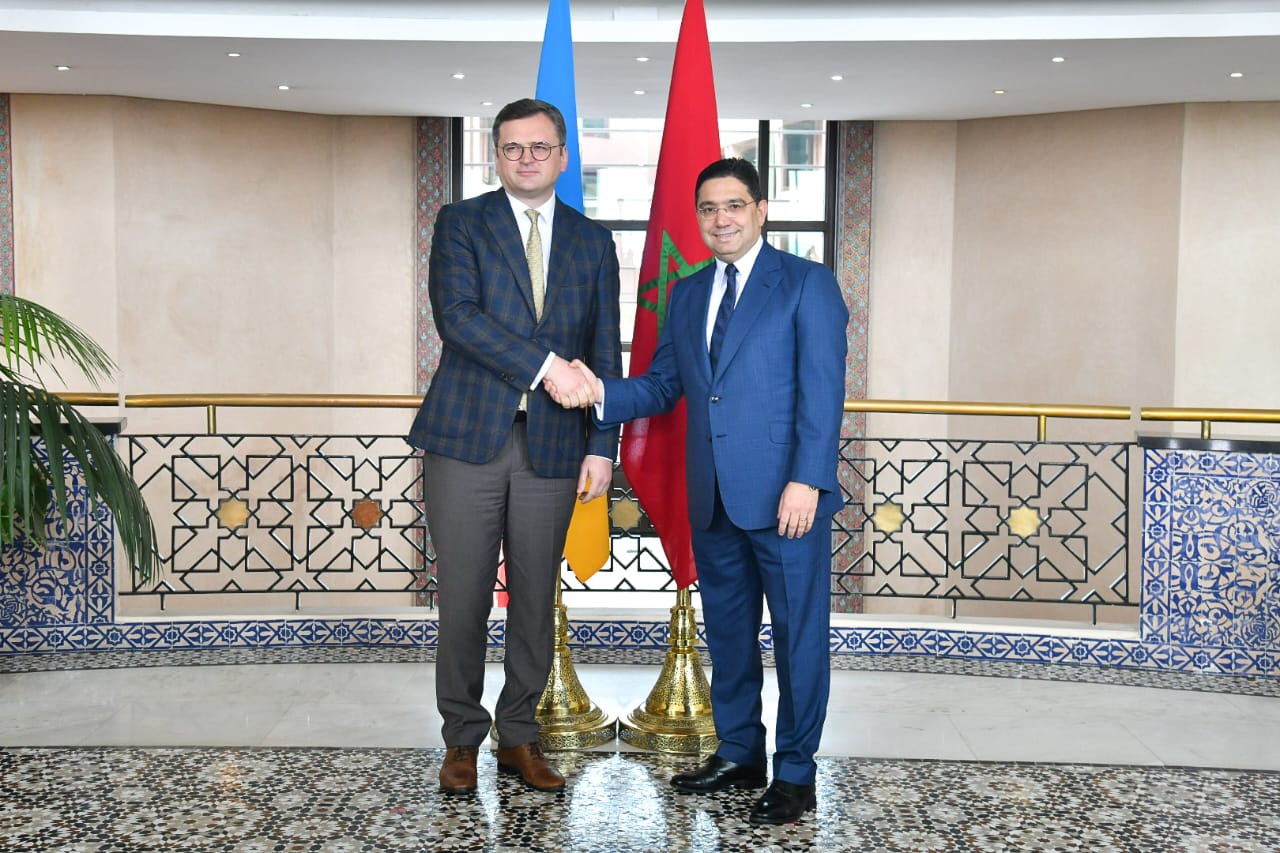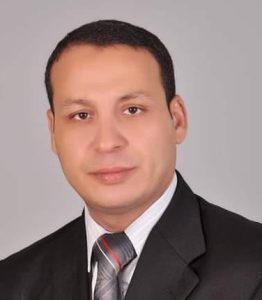The visit of Ukrainian Foreign Minister Dmitry Kuleba to Morocco on May 22nd takes place amidst various transformations on the regional and international stages. These transformations particularly pertain to the enhanced relations between Syria and several Arab countries, as well as the ongoing war between Russia and Ukraine that has persisted since February 24, 2022.
During the visit, Kuleba made a noteworthy effort to reaffirm his country’s backing for Morocco’s policy on the Sahara issue. He emphasized Ukraine’s regard for “territorial unity as a sacred concept” and publicly declared their support for the Moroccan autonomy plan. This plan was seen by Ukraine as a “promising foundation for a successful resolution of the Sahara conflict.” Such a stance from Ukraine raises questions about the underlying motivations behind their inclination to align with Morocco’s position on the Sahara issue.
Noteworthy Timing
The visit of Ukrainian Foreign Minister Dmitry Kuleba to Morocco holds significance, being the first of its kind and occurring as part of his tour to various African countries. It is notable that Kuleba’s visit coincided with significant developments on both regional and international fronts.
On the regional front, an important development occurred when Syria was welcomed back into the Arab League following a decision made by the Arab foreign ministers’ council on May 7th. This decision ended over a decade of diplomatic isolation imposed on Damascus by some Arab countries. From Kyiv’s perspective, this development opens the possibility of forging new alliances that include Morocco and could potentially lead to improved Moroccan-Syrian relations. This Ukrainian approach aligns with the Russian position, considering Russia’s strong ties with Syria and its notable support in ending Syria’s isolation. President Volodymyr Zelensky of Ukraine emphasized this perspective in his speech at the Arab Summit held in Jeddah on May 19th, where he cautioned against the continued support of some Arab countries for Russia in its war against Ukraine.
The visit to Morocco, along with the broader tour, took place subsequent to President Zelensky’s announcement of a peace plan aimed at resolving the conflict with Russia. Kyiv strongly advocates for Zelensky’s proposed peace formula, which comprises 10 key points, including the withdrawal of Russian forces from Ukrainian territory. This plan is seen as the fundamental framework for any potential resolution to the war instigated by Russia. During his address at the G7 Summit on May 20th, Zelensky proposed the convening of a global peace summit in July to present his plan.
Against this backdrop, Ukraine is actively seeking to enhance its efforts in gaining support for its new position and initiative from countries worldwide, particularly in light of the emergence of rival peace plans proposed by other nations to resolve the conflict in Ukraine. China, for instance, has been promoting its own peace plan and has dispatched a senior envoy to Kyiv, Moscow, and various European capitals to engage in discussions aimed at achieving a political settlement for the ongoing war. Furthermore, South Africa has confirmed that Kyiv and Moscow have agreed to engage in talks regarding a peace plan involving African leaders.
Multiple Motivations
Ukraine’s announcement of its support for Morocco’s position on the Sahara issue at this particular timing can be interpreted in light of several motivations, including the following key factors:
- Seeking Morocco’s endorsement of the Ukrainian peace initiative is a key objective for Ukraine, as it actively strives to secure support from countries across the globe for its vision, which it deems essential for attaining peace with Russia. During the visit to Morocco, Minister Kuleba emphasized his primary focus on persuading African nations to back President Zelensky’s peace plan. Taking to Instagram, he wrote, “There are crucial negotiations on the horizon with African leaders and companies,” expressing his goal of rallying support for the unimpeded transportation of Ukrainian grains via the Black Sea and creating fresh prospects for Ukrainian businesses.
In light of this, Kuleba conveyed Ukraine’s appreciation to Morocco for its position on the war, acknowledging Rabat’s support for the United Nations resolutions pertaining to the conflict. He further highlighted Ukraine’s desire to attract a significant number of Moroccan students to enroll in Ukrainian educational institutions. Kuleba emphasized that Kyiv is actively working towards facilitating the return of Moroccan students who had to interrupt their studies due to the war, thereby enabling them to resume their education at Ukrainian universities.
- Striking a balance amidst Russia’s international maneuvers: Although the relationship between Morocco and Russia is still in the early stages of development, both countries openly express their desire to uphold their bilateral economic interests, as evidenced by the recent renewal of their cooperation agreement in the field of maritime fishing. Consequently, Ukraine harbors concerns about the possibility of Russia successfully persuading Morocco to align with its stance on the war, particularly as some reports suggest a growing realization in Europe and Ukraine that there is a risk of perceiving this conflict primarily as a European issue, which could lead to reduced concern and condemnation from other nations. It is within this context that Ukraine’s support for Morocco’s position on the Sahara issue gains significance, especially considering that Moscow has refrained from taking a clear stance on this matter, likely due to apprehensions about its impact on its relations with Algeria.
- Promoting Morocco’s endorsement of Ukraine’s sovereignty over the eastern regions: Numerous reports indicate that Morocco does not align with Moscow’s policy of annexing Ukraine’s eastern regions. In light of this, Kuleba emphasized the shared recognition by Ukraine and Morocco of the importance of sovereignty and territorial integrity for both nations. He highlighted Ukraine’s support for Morocco’s autonomy plan, which seeks to find a resolution to the conflict in the Sahara region. Moroccan Foreign Minister Nasser Bourita reiterated Morocco’s consistent stance regarding the respect for state sovereignty and territorial integrity. He affirmed that Morocco has remained committed, since the onset of the crisis in Ukraine, to upholding the principles of the rule of law and international legitimacy. Morocco has refrained from employing force to resolve conflicts and has actively encouraged dialogue while respecting relevant United Nations resolutions.
- Leveraging tensions with Syria and Iran: Kyiv recognizes a shared position with Morocco concerning their respective relationships with Syria and Iran, both of which are marked by ongoing tensions. Ukraine intends to capitalize on this situation to broaden its array of choices on the international front, particularly in light of Syria and Iran’s backing of Russia in the war, alongside Morocco’s allegations against Iran and Lebanese Hezbollah for supporting the Polisario Front and providing it with drones.
Continuous Efforts
Given the above-mentioned factors, it can be concluded that Ukraine will persist in its efforts to gain support from multiple countries for its position on the war initiated by Russia since February 24, 2022. Ukraine firmly believes that a diplomatic approach, rather than military measures, is the most viable path to resolving the conflict and achieving a settlement among the involved parties.


